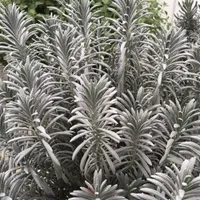Landscape designer shares her Mediterranean backyard design tips from this real LA garden
Discover the secrets to creating this calm Provence-style outdoor retreat in the Hollywood Hills

Natasha Goodfellow
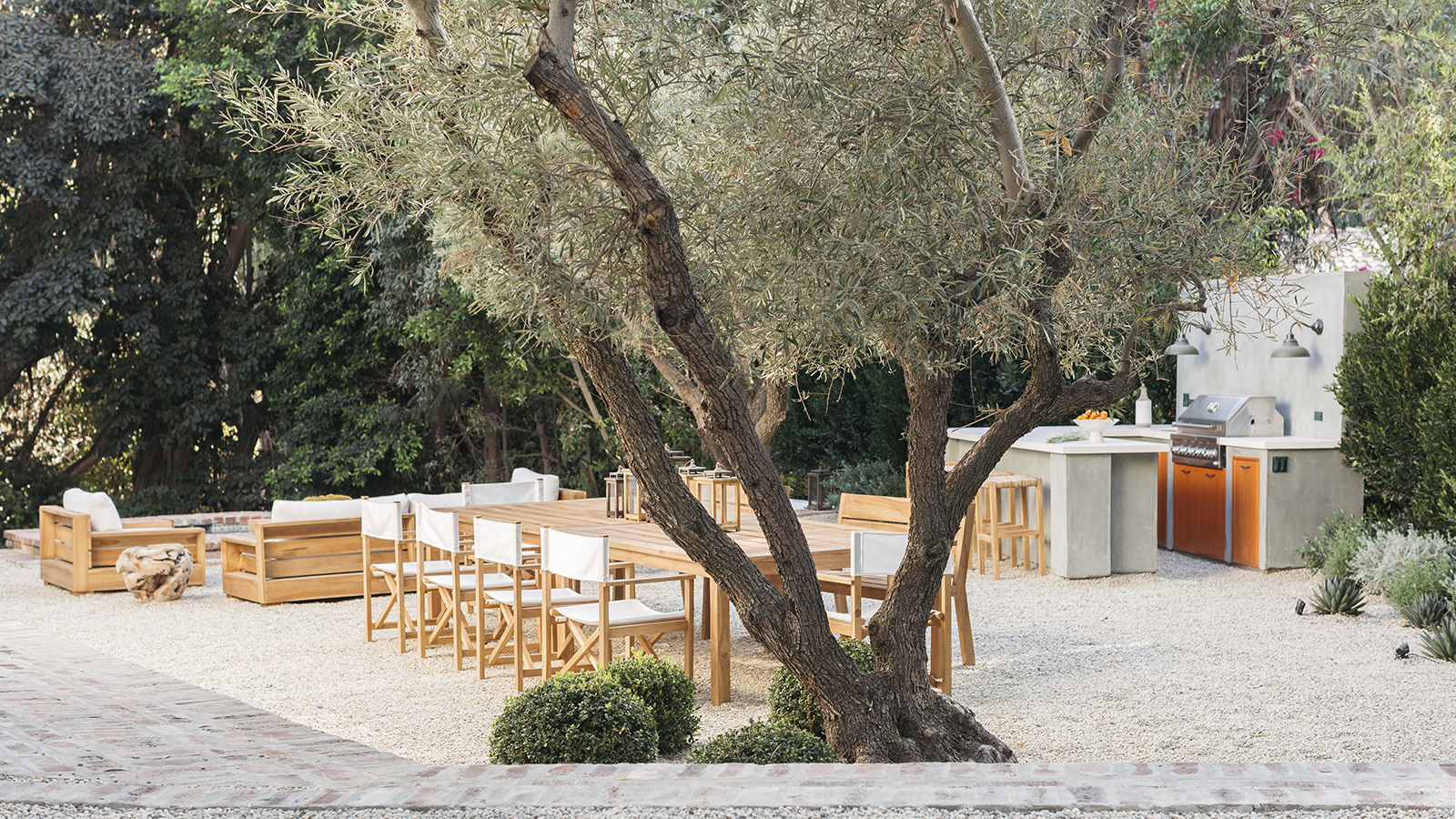
Design expertise in your inbox – from inspiring decorating ideas and beautiful celebrity homes to practical gardening advice and shopping round-ups.
You are now subscribed
Your newsletter sign-up was successful
Want to add more newsletters?

Twice a week
Homes&Gardens
The ultimate interior design resource from the world's leading experts - discover inspiring decorating ideas, color scheming know-how, garden inspiration and shopping expertise.

Once a week
In The Loop from Next In Design
Members of the Next in Design Circle will receive In the Loop, our weekly email filled with trade news, names to know and spotlight moments. Together we’re building a brighter design future.

Twice a week
Cucina
Whether you’re passionate about hosting exquisite dinners, experimenting with culinary trends, or perfecting your kitchen's design with timeless elegance and innovative functionality, this newsletter is here to inspire
Restrained materials and a muted color pallet are just one way that a sense of calm has been created in this Mediterranean backyard, away from the hustle and bustle of Los Angeles.
Whether it’s Sunset Strip, Venice Beach or the film studios of Hollywood, Los Angeles is not a city generally associated with calm. This landscape designer has incorporated design elements usually associated with the Mediterranean, from her choice of planting to her use of materials.
Climate-wise LA is an ideal match for Mediterranean garden ideas, with drought-tolerant planting and outdoor living at the fore.
‘There’s so much hustle and bustle in LA,’ says the designer of this backyard, Mintee Kalra of design firm Peruse. ‘You have to drive to get up here, through all the traffic and the chaos, so when you arrive, I wanted there to be the feeling of an exhale.’
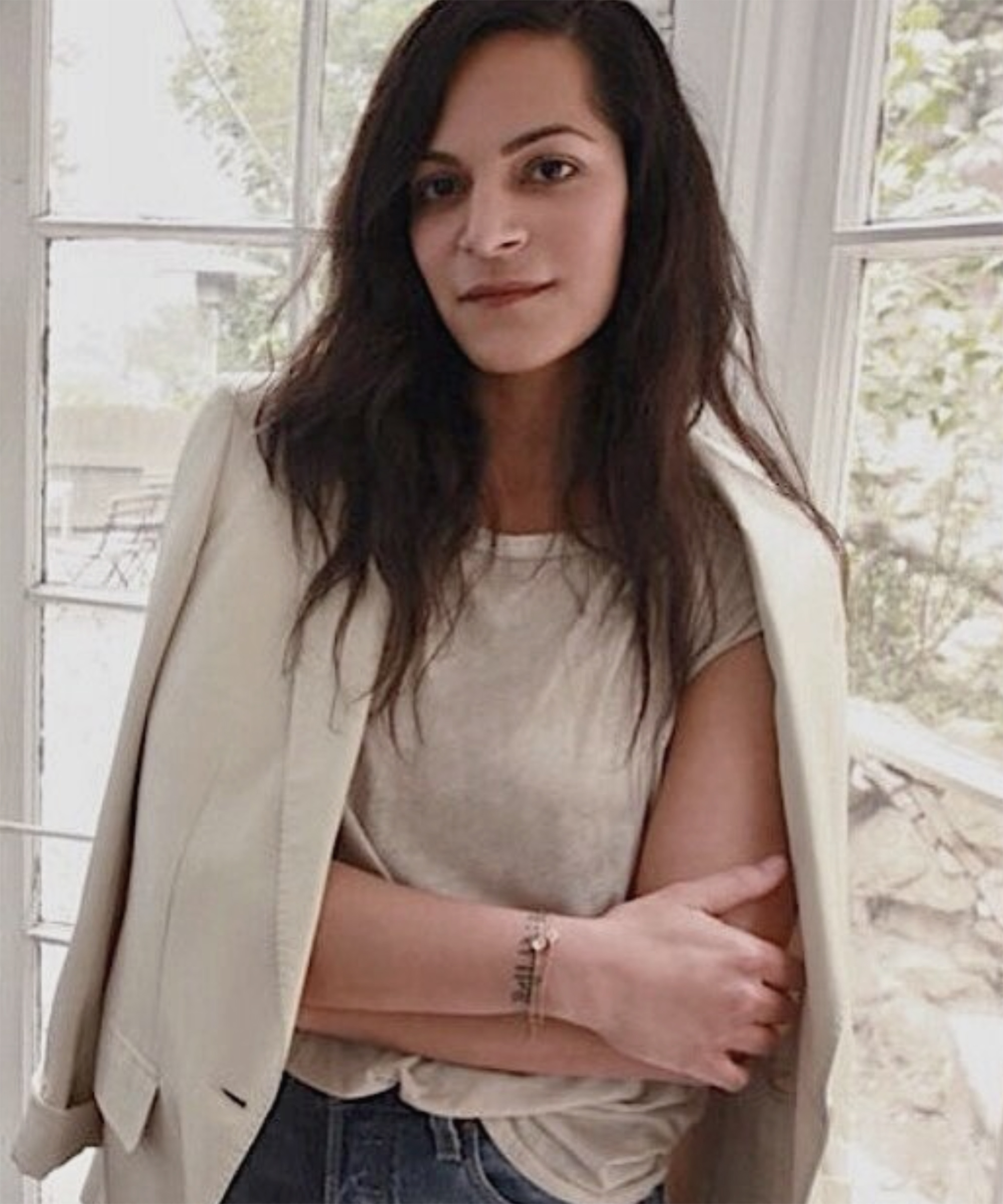
Co founder of family-owned boutique design practice located in Los Angeles. Their aim is to harness complex design factors to create beautiful, well-functioning, exterior spaces that will thrive over time.
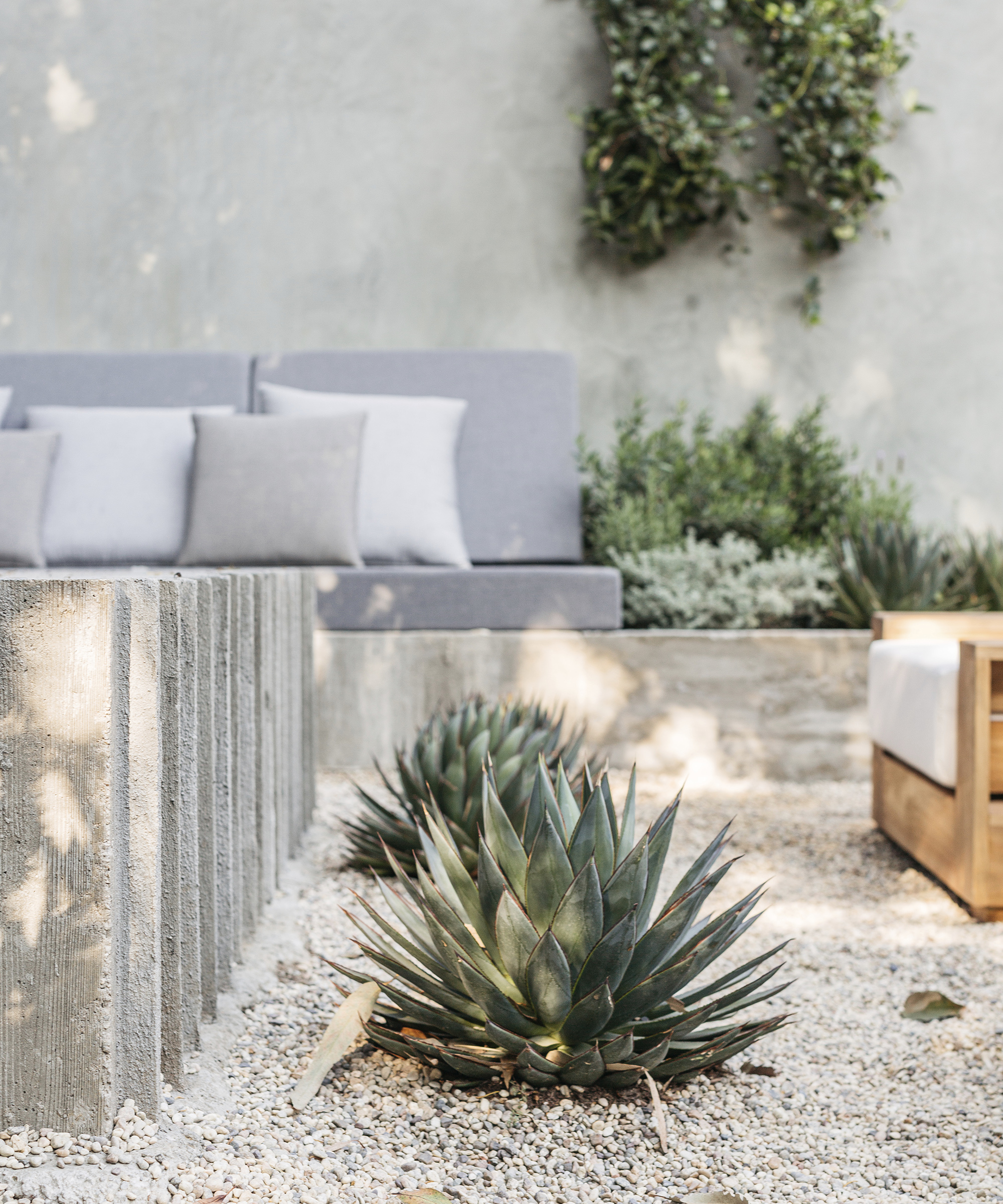
Mintee has used repeat plantings of lavender, Agave ‘Blue Glow’ and Westringia fruticosa ‘Smokie’ to create a rich tapestry at the edges of the garden
Explore the Mediterranean backyard design tips on display in this LA garden
The finished space provides an expert lesson on how to create a Mediterranean garden. The restful backyard is attached to a house designed by 1970s LA architect, Fred Smathers. In part this is achieved through its thoughtful palette of both materials and plants but there are other tricks at work, too.
Mintee – a former fashion designer – was keen that the garden should channel the languid, voluptuous feeling of gardens she’d visited in Provence while traveling for her job. ‘I love that culture of lingering over meals and enjoying an intimacy in the company you’re with,’ she says.
She outlines the ways in which her and her team created this backyard oasis which perfectly exemplifies the Mediterranean backyard trend.
Design expertise in your inbox – from inspiring decorating ideas and beautiful celebrity homes to practical gardening advice and shopping round-ups.
Creating different outdoor living areas
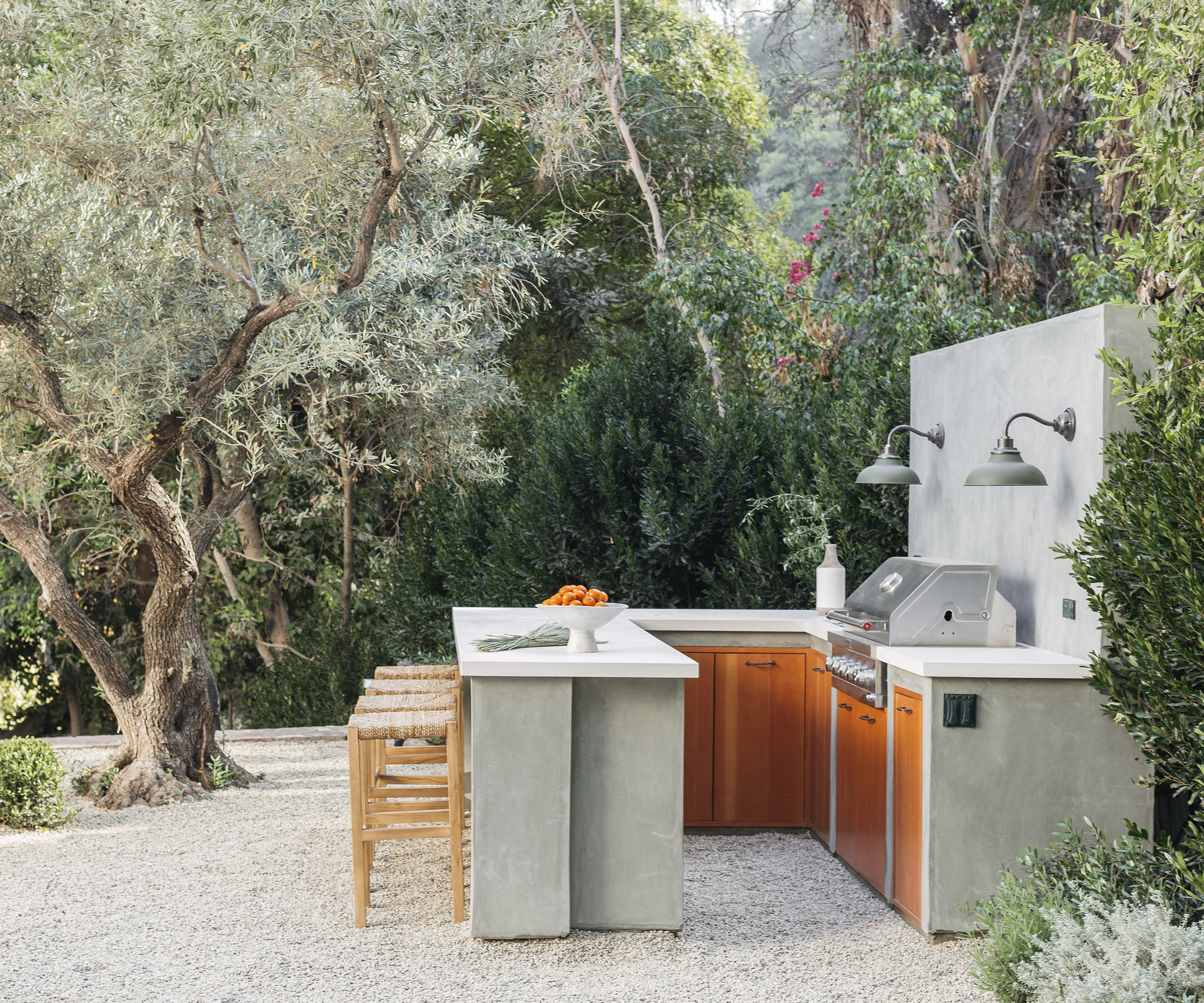
The bespoke outdoor kitchen is built from sand-finished concrete and reclaimed wood, with a bullnose limestone countertop
Mintee designed the garden as a social space with three key gathering areas, which act as anchors to the rest of the space.
The outdoor living areas include a fully equipped kitchen, large dining area and laid-back lounge.
The bespoke outdoor kitchen is built from sand-finished concrete and reclaimed wood, with a bullnose limestone countertop. The kitchen taps are copper piping and deliberately utilitarian to contrast with the rich materials elsewhere
The kitchen and dining areas are set on a lower level to enhance the sense of seclusion and ease, while the raised lounge space, with its outdoor sofas and board-formed concrete fire pit, feels even more cozy and cocooned thanks to its jasmine-draped perimeter walls.
Opting for a gentle color palette
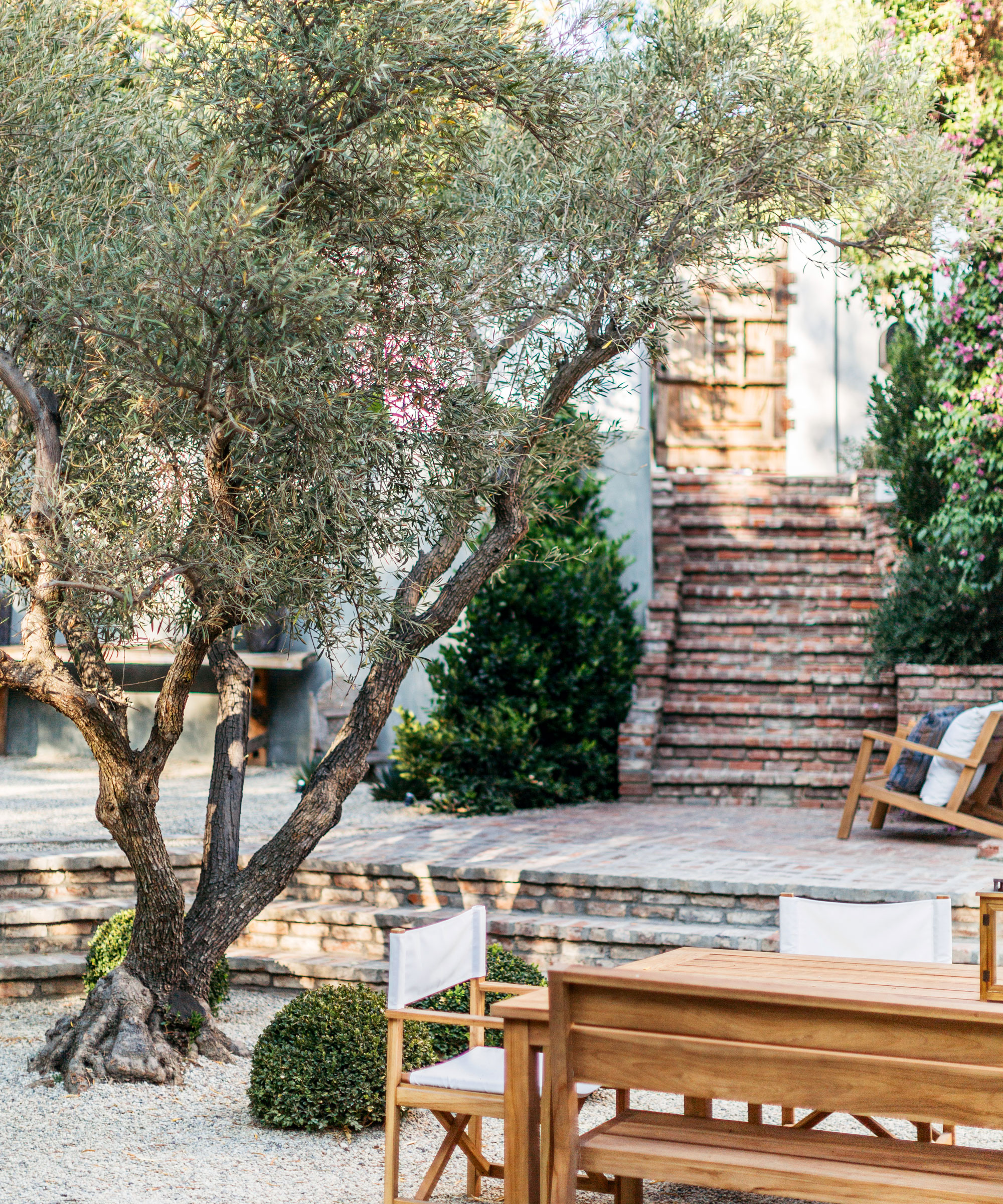
Bricks reclaimed from the original garden were used to create the steps
The garden color scheme Mintee used is deliberately minimal. It's an elegant mix of silvers and blue-toned greens, with pops of Provencal lavender and white (from the jasmine and westringia flowers) and bright magenta from existing bougainvilleas, which Mintee had pruned to make them more delicate.
‘This repetition of plant materials is very important to me,’ says Mintee. ‘It adds cadence and rhythm and, even though it’s very simple, it always feels luxurious.’
In terms of hardscaping, concrete is used in multiple ways. The large fire pit is made of board-formed concrete, which has a slightly industrial look. A subtle contrast to the sand-finished concrete of the walls.
Swathes of gravel connect the different areas of the backyard and create a seamless cohesion. Try this Mini Marble Chip Landscape Rock 32 Bags at Home Depot for a similar effect.
Choosing plants which have sensory appeal
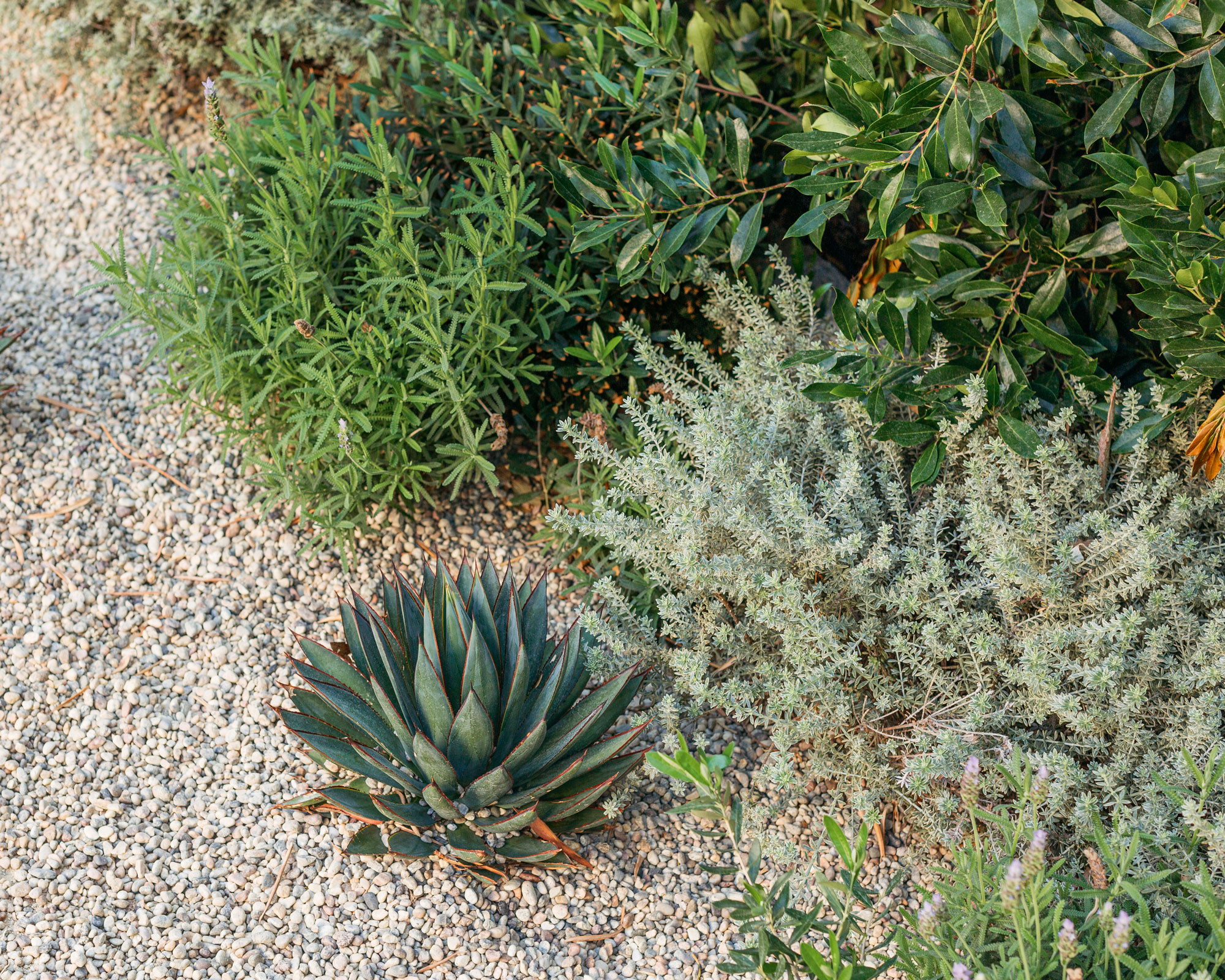
The climate in LA (warm and often very dry) is comparable to that of Provence, so Mintee was able to use a similar plant palette too, choosing plants with multi-sensory appeal.
There are jasmine and lavender for scent – Lavender stoechas so-called ‘French lavender’ has aromatic flowers above blue-green foliage, and Trachelospermum jasminoides or star jasmine is happy in full sun or dappled shade; evergreen cherry laurel (Prunus caroliniana); Australian rosemary (Westringia fruticosa); and spiky, drought-tolerant Agave ‘Blue Glow’ for their contrasting foliage.
Other low-maintenance favorites include Philodendron selloum, a lush, tropical plant that has a pleasing architectural silhouette. Best for graphic appeal are Buxus sempervirens that can be clipped into myriad shapes and forms.
‘I love the scattered box globes on the higher level. As you walk through this sensory garden there’s a sense of playfulness, a hide-and-seek vibe,’ says Mintee.
Good for pollinators is Westringia fruticosa ‘Smokey’, a good clump-forming plant whose white flowers are loved by bees.
When it comes to creating a backdrop, Mintee favors Prunus caroliniana ‘Bright and Tight’. It makes a closely packed evergreen hedge, adding instant color and privacy.
Sensational!® Lavender | Was $59.99, now $39.59
These large blooms will exude powerful fragrance and can be grown in USDA zones 5-9.
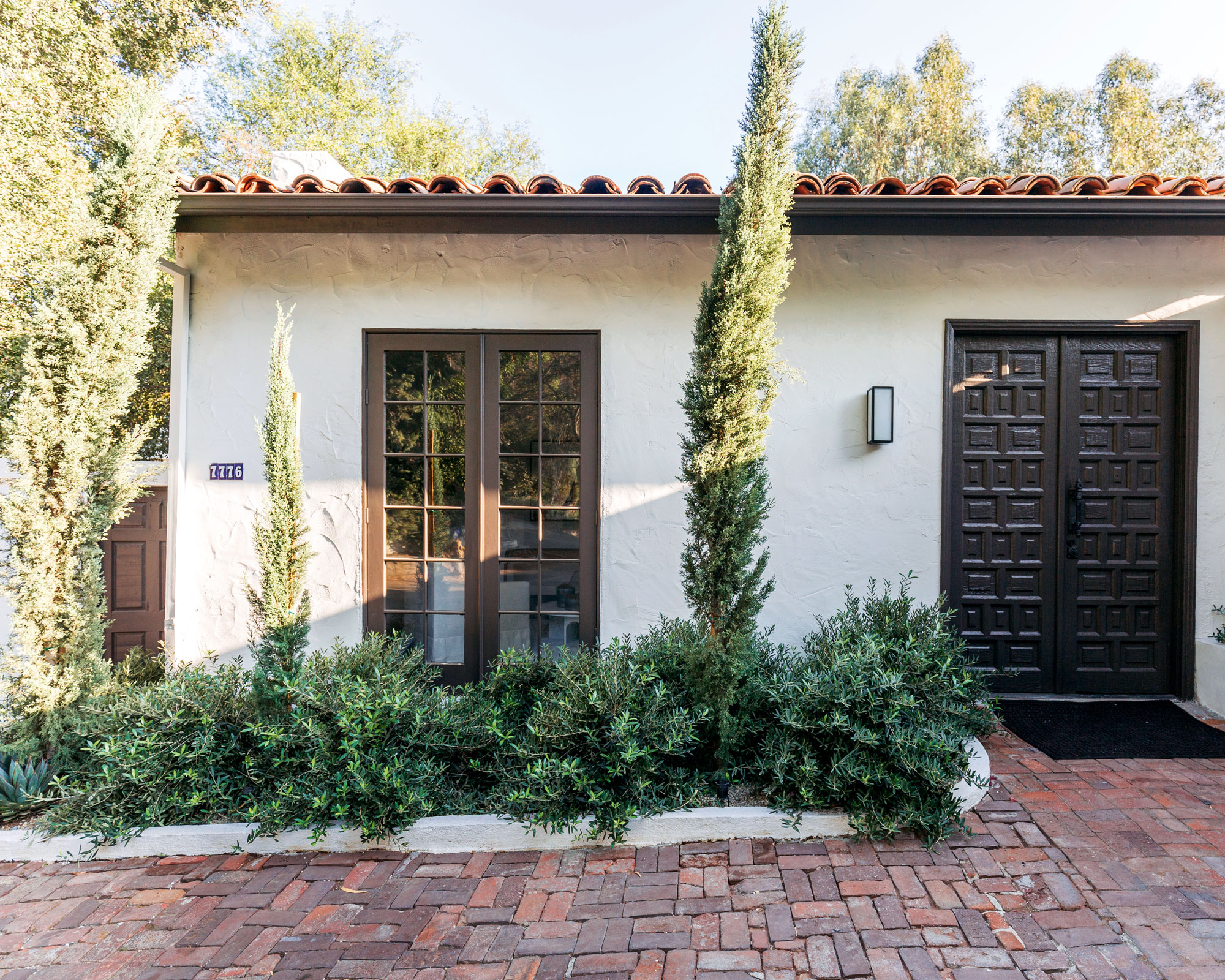
Slender cypresses underplanted with olive shrubs frame the house entrance in a simple but effective combination
Adding impact with trees
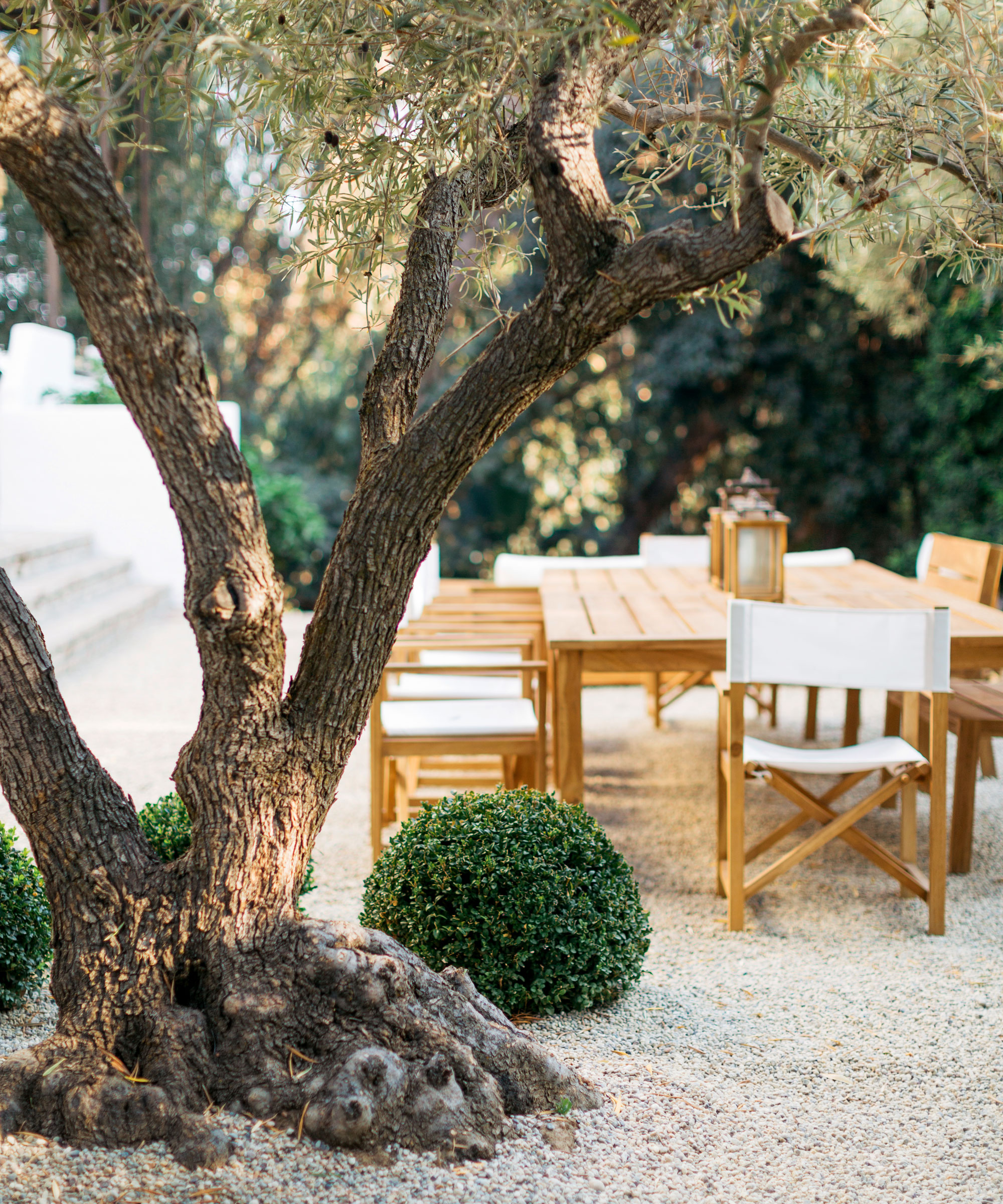
A multi-stemmed olive tree is an eye-catching centerpiece and a lovely way of shading the dining area
Most dramatic of all, two wonderfully gnarled 40-year-old olive trees (Olea europaea ‘Sevillano’) frame the space and provide some much-needed shade. Fifteen feet tall, weighing 6,000lbs and each with a 6ft x 2ft root ball, getting these into the garden was no easy matter.
‘It was one of those hold-your-breath moments,’ says Mintee. ‘We brought them as far as we could on a flatbed truck and then used a skyjack to bring them the last quarter of a mile up the hairpin bends to the house. A long-reach crane then made the final lift to hoist them into place.’
The effort was well worth it. Their twisting, characterful trunks add a feeling of age and permanence to the garden, which was only completed last summer, and their feathered canopies filter the light, adding far more interest and biodiversity than a pergola or sunshade might.
Combined with the other small trees (crepe myrtles, chosen for their year-round interest, and some tall existing eucalyptus with fabulous peeling bark) they also cast beautiful shadows on the concrete walls in the garden, adding a further dimension to the space.
Using gravel for surfaces
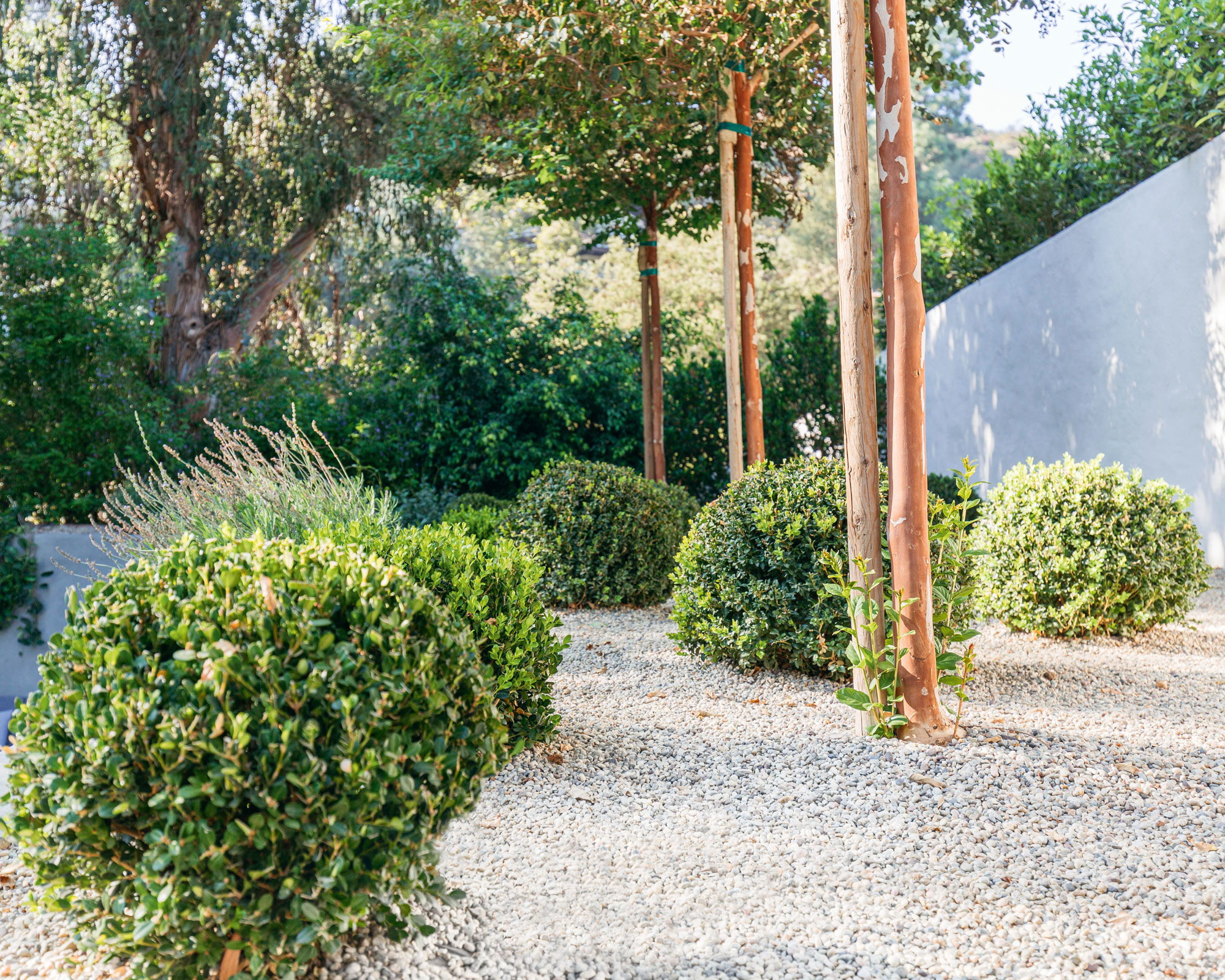
Box balls are planted at random beneath crepe myrtles on the upper level of the garden, adding a touch of whimsy to the space
Gravel gardens tend to work best in sunnier spots away from deciduous trees. Since they retain water and stop it evaporating, true gravel gardens will not need much water.
Mintee advises that the first two inches of the base layer should be a 50:50 mix of decomposed granite or crushed stone and pea gravel in the same color tone. Lay this over a base cloth and compress, and then top with half an inch of loose gravel. This gives a stable base and a nice crunching sound when you walk. Medium grade gravel (10-20mm diameter) is the easiest to walk on.
If planting into gravel, a permeable membrane can be a good idea to suppress weeds. Simply cut a hole wherever you wish to plant. Mediterranean or drought tolerant plants such as agaves, rosemary and lavender are well-suited to growing in gravel.
Remember to rake your gravel occasionally – it instantly freshens it up and looks smarter.
Choose low-maintenance drought tolerant plants:
Mintee's planting list include an array of low maintenance plants, which are ideal for the LA climate, and which encapsulate the Mediterranean trend.
- Philodendron selloum: a lush, tropical plant, grown in USDA zones 8-11, which gives a bold architectural shape.
- Agave ‘Blue Glow’: is a slow-growing agave, with handsome rosettes of finely toothed leaves.
- Buxus sempervirens: can be clipped into myriad shapes and forms, giving it huge graphic appeal.
- Lavender stoechas: so-called ‘French lavender’ has aromatic flowers above blue-green foliage, ideal for a hit of heady scent.
- Westringia fruticosa ‘Smokie’: a good clump-forming plant for pollinators whose white flowers are loved by bees.
- Prunus caroliniana ‘Bright and Tight’: makes a closely packed evergreen hedge, adding instant color and privacy.
- Trachelospermum jasminoides Star jasmine: is happy draped over a wall in full sun or dappled shade.
- Olea europaea ‘Sevillano’: an old, gnarled olive tree which will add instant character to your backyard.
FAQs
How do I landscape with Mediterranean plants?
There are several easy and affordable ways to incorporate Mediterranean planting into your garden. So if you want good cheap landscaping ideas to make your garden look Mediterranean, start by looking at pictures to decide on a particular style. Perhaps consider a classic Italian vineyard garden of towering cypresses, olive, lavender and clipped shapes, or a more typically Spanish garden of palms and citrus.
Once you have settled on Mediterranean plants to try, think about the setting. Lawns are a luxury in hot, dry climates, and often replaced with paving to bring a courtyard look. Tiles are tempting but in wetter regions they are apt to be slippery and best used to decorate walls. Pale gravels bring texture to paths or as a mulch for plants. Slightly raised beds edged with brick, flint or stone will help keep the roots of sensitive plants drier in areas where winters are wet and cold. A pergola creates a home for climbing plants, as well as casting shade over a seating area.
The garden is zoned around key gathering areas for cooking, eating and relaxing. So have a look at our pick of the best outdoor furniture available at the moment.
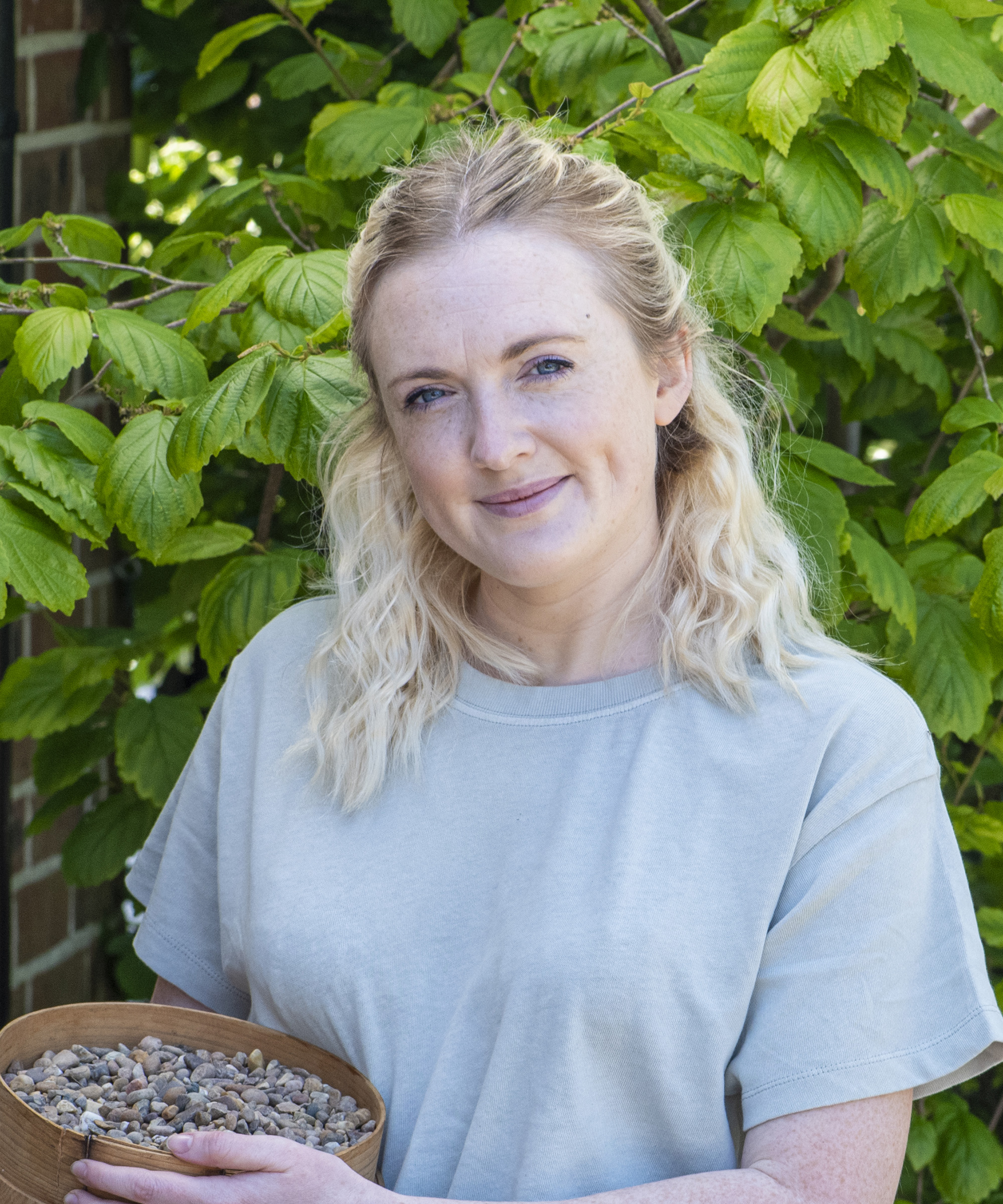
Teresa was part of a team that launched Easy Gardens magazine two years ago and edited it for some time. Teresa has been a Gardens Editor at Homes & Gardens, Country Homes & Interiors and Living Etc magazine since 2020 and has developed close working relationships with top garden designers, and has been exposed to an array of rich garden content and expertise.
- Natasha GoodfellowFreelance Writer
